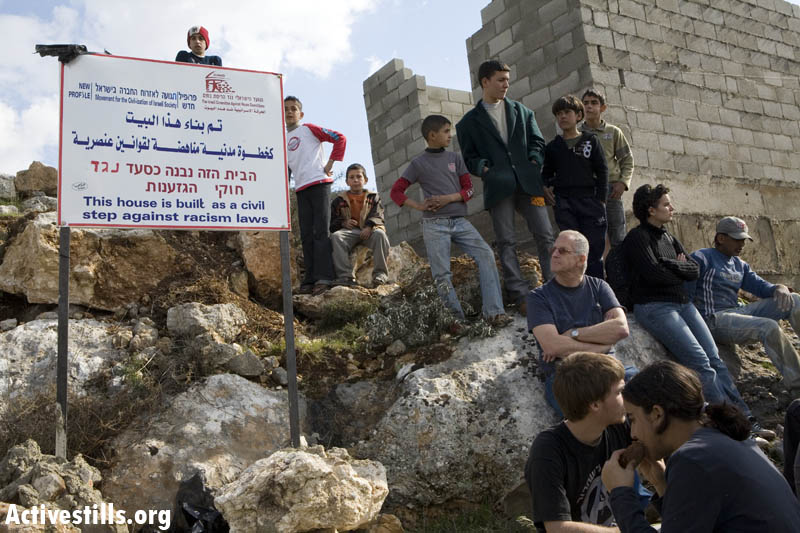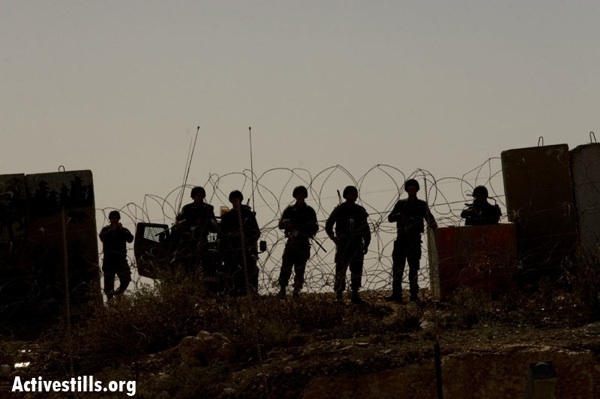Racked by guilt for having exposed a modicum of the truth regarding Israel’s policies towards the Palestinians, Judge Richard Goldstone does an about-face and becomes a spokesperson for the Israeli right wing. Is Goldstone the new Benny Morris?
By Omar Rahman and Abir Kopty
Richard Goldstone could give those guys at AIPAC a run for their money. So misleading was his recent whitewash in the New York Times on the apparent slander “Israeli Apartheid,” that hasbara peddlers everywhere were taking his picture off their dartboards and putting them on their mantles.
It was incredibly telling that the words “settlement” and “settler” did not appear once in the entire article, as if they are not worth mentioning in a discussion of apartheid. On the contrary, settlers are one of the two main protagonists in the story of apartheid in the occupied territories, where they are given privilege over Palestinians in every facet of life—but Goldstone apparently felt they were not worth his attention, or maybe just detrimental to his argument.
Instead Mr. Goldstone thought it best to highlight how equal Palestinian citizens of Israel are with their Israeli compatriots. What he once again failed to mention was the 63-year process of dispossession those Palestinians have endured by the hand of their state, which has stripped them of 90 percent of their land and allocated it for Jewish use only. Nor does he reference the vast disparities in public funding and resources between Israel’s Jewish and Palestinian communities or the discriminatory legislation like the Law of Return, the Population Registry Law, or the myriad land laws that prevent Palestinian leasing and ownership. For Goldstone, it is much more important to let the world know that Palestinians are not prohibited from using the same toilets as Jewish-Israelis.
Neither does Goldstone actually dispute that the instruments of apartheid exist in the occupied territories, but rather, he excuses this because Israel does not really “intend” to enforce racial segregation for the benefit of one people over another. Yet, the mere fact that Israel continues to settle its population in the occupied territories, and has been for 44 years, demonstrates explicit intent. A short visit to the West Bank will reveal the permanent structures on the ground: huge city-settlements, cement barriers, and permanent checkpoint “terminals.”
Jewish settlers have access to separate roads, infrastructure, neighborhoods and services, and enjoy a freedom of movement denied to Palestinians. They are allowed arms and protection from the military. The allocation of fresh-water resources has repeatedly been documented to be excessively disproportionate between Jews and Arabs. More than anything else, however, it is the separate legal systems for both peoples living on the same piece of land that exemplifies their unequal treatment. Jewish settlers are under the extra-judicial jurisdiction of the State of Israel and its civilian courts, while a Palestinian that may live next door to an Israeli settler is subject to the military court system. Every Palestinian living under the military authority has been subject to hundreds of military orders that arbitrarily govern their lives.

Mr. Goldstone intentionally fails at portraying the big picture
Simply because Israeli apartheid is not a mirror image of its South African counterpart does not preclude it from the term. If we take Goldstone’s advice and look separately at Israel’s treatment of its Palestinian citizens and those it occupies, it is easy to lose sight of what has been happening over the past 63 years. Israel has been operating an apartheid regime by controlling the lives of all Palestinians—albeit in different ways—living on the entirety of the land where it exercises its sovereignty. Although Palestinian governance has changed over the last 20 years with the creation of the relatively autonomous Palestinian Authority, ultimate control has remained with Israel, which it has used to keep power in the hands of its Jewish citizens. As long as there is no permanent agreement, the conflict and solution is an open question and Israel remains responsible for the government it administers and the crime of apartheid.
It is the false notion that Israeli control over the West Bank and Gaza Strip is ‘temporary,’ which Goldstone echoes, that serves the purpose of treating Israel’s regime in the occupied territories as somehow immune to that crime. A perpetually looming peace agreement has been Israel’s best defense against a whole scale reevaluation of the conflict.
Goldstone’s central conclusion is that attempts to place the apartheid mantle on Israel will ‘retard’ rather than forward the peace process. This argument, which has been a common anthem for those intent on keeping the Palestinians shackled to a process that has failed to deliver them their freedom, runs counter to empirical evidence. Only through increased pressure and isolation was apartheid South Africa motivated to relinquish its racist regime. In Israel’s case, dismantling the colonial architecture in the occupied territories will be no small task. It is a naive and imprudent expectation to believe that Israel will come to an agreement absent any real pressure that will force them to reconsider the cost/benefit value of the occupation and the settlement enterprise.
We all remember when George Bush Sr. wielded the money card to Israel over its settlements and how this caused Israel’s prime minister to put a halt on settlement construction. Compare that to President Obama’s sharp words over settlements hedged against an increase in financial and military support, as well as diplomatic cover for Israel at the United Nations. The countless condemnations fell on deaf ears and Israel’s government repudiated its American counterpart numerous times in public, including the announcement of 1,100 settlement units during Vice President Joe Biden’s visit to the country. Even after Israel signed the Oslo Accords it continued to expand settlements and multiply their population in the occupied territories.
The term apartheid being popularly applied to Israel is no accident, or malicious attack as Goldstone insists. The rise in its use has paralleled the loss of faith in the implementation of the two-state solution, which strips the veil and allows all observers of this conflict to look at the situation on the ground and recognize that Israel has been in the process of instituting an apartheid regime for decades.
*Abir Kopty is a blogger, media analyst and consultant. She is a former city council member for Nazareth.


